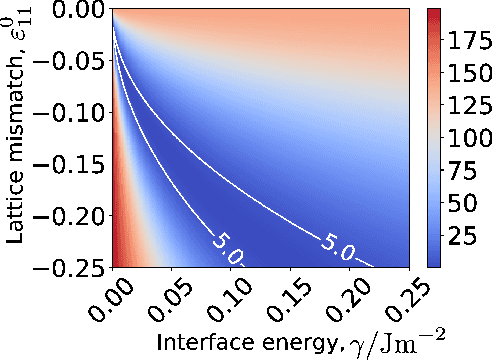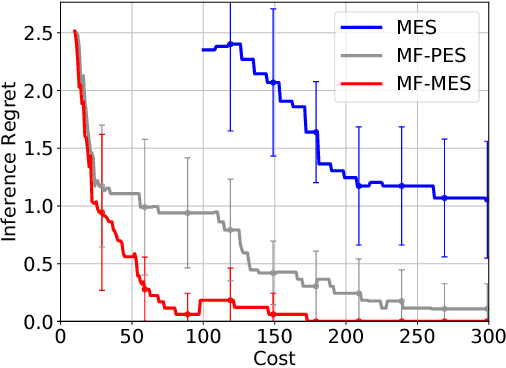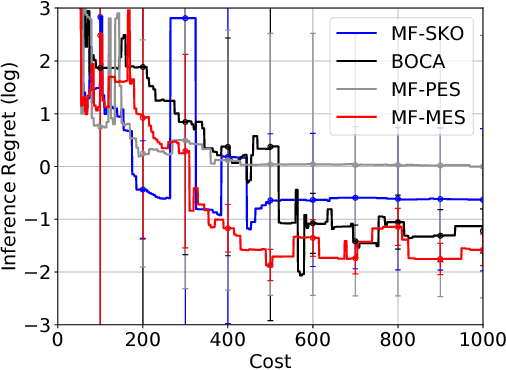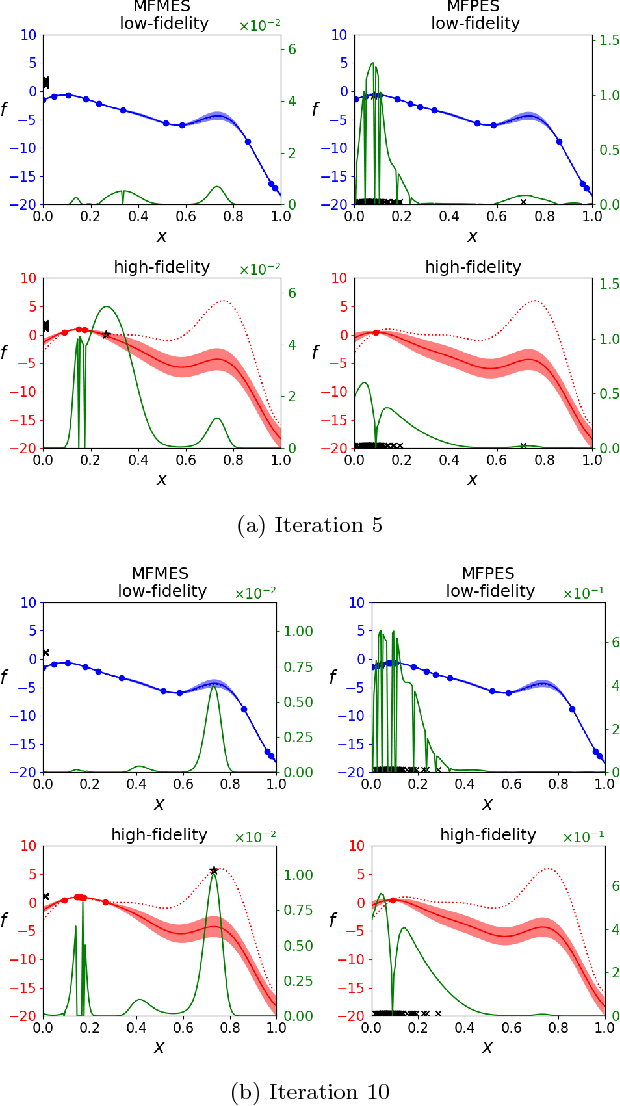Hitoshi Fukuoka
Cost-effective search for lower-error region in material parameter space using multifidelity Gaussian process modeling
Mar 15, 2020



Abstract:Information regarding precipitate shapes is critical for estimating material parameters. Hence, we considered estimating a region of material parameter space in which a computational model produces precipitates having shapes similar to those observed in the experimental images. This region, called the lower-error region (LER), reflects intrinsic information of the material contained in the precipitate shapes. However, the computational cost of LER estimation can be high because the accurate computation of the model is required many times to better explore parameters. To overcome this difficulty, we used a Gaussian-process-based multifidelity modeling, in which training data can be sampled from multiple computations with different accuracy levels (fidelity). Lower-fidelity samples may have lower accuracy, but the computational cost is lower than that for higher-fidelity samples. Our proposed sampling procedure iteratively determines the most cost-effective pair of a point and a fidelity level for enhancing the accuracy of LER estimation. We demonstrated the efficiency of our method through estimation of the interface energy and lattice mismatch between MgZn2 and {\alpha}-Mg phases in an Mg-based alloy. The results showed that the sampling cost required to obtain accurate LER estimation could be drastically reduced.
Multi-fidelity Bayesian Optimization with Max-value Entropy Search
Jan 24, 2019



Abstract:Bayesian optimization (BO) is an effective tool for black-box optimization in which objective function evaluation is usually quite expensive. In practice, lower fidelity approximations of the objective function are often available. Recently, multi-fidelity Bayesian optimization (MFBO) has attracted considerable attention because it can dramatically accelerate the optimization process by using those cheaper observations. We propose a novel information theoretic approach to MFBO. Information-based approaches are popular and empirically successful in BO, but existing studies for information-based MFBO are plagued by difficulty for accurately estimating the information gain. Our approach is based on a variant of information-based BO called max-value entropy search (MES), which greatly facilitates evaluation of the information gain in MFBO. In fact, computations of our acquisition function is written analytically except for one dimensional integral and sampling, which can be calculated efficiently and accurately. We demonstrate effectiveness of our approach by using synthetic and benchmark datasets, and further we show a real-world application to materials science data.
 Add to Chrome
Add to Chrome Add to Firefox
Add to Firefox Add to Edge
Add to Edge